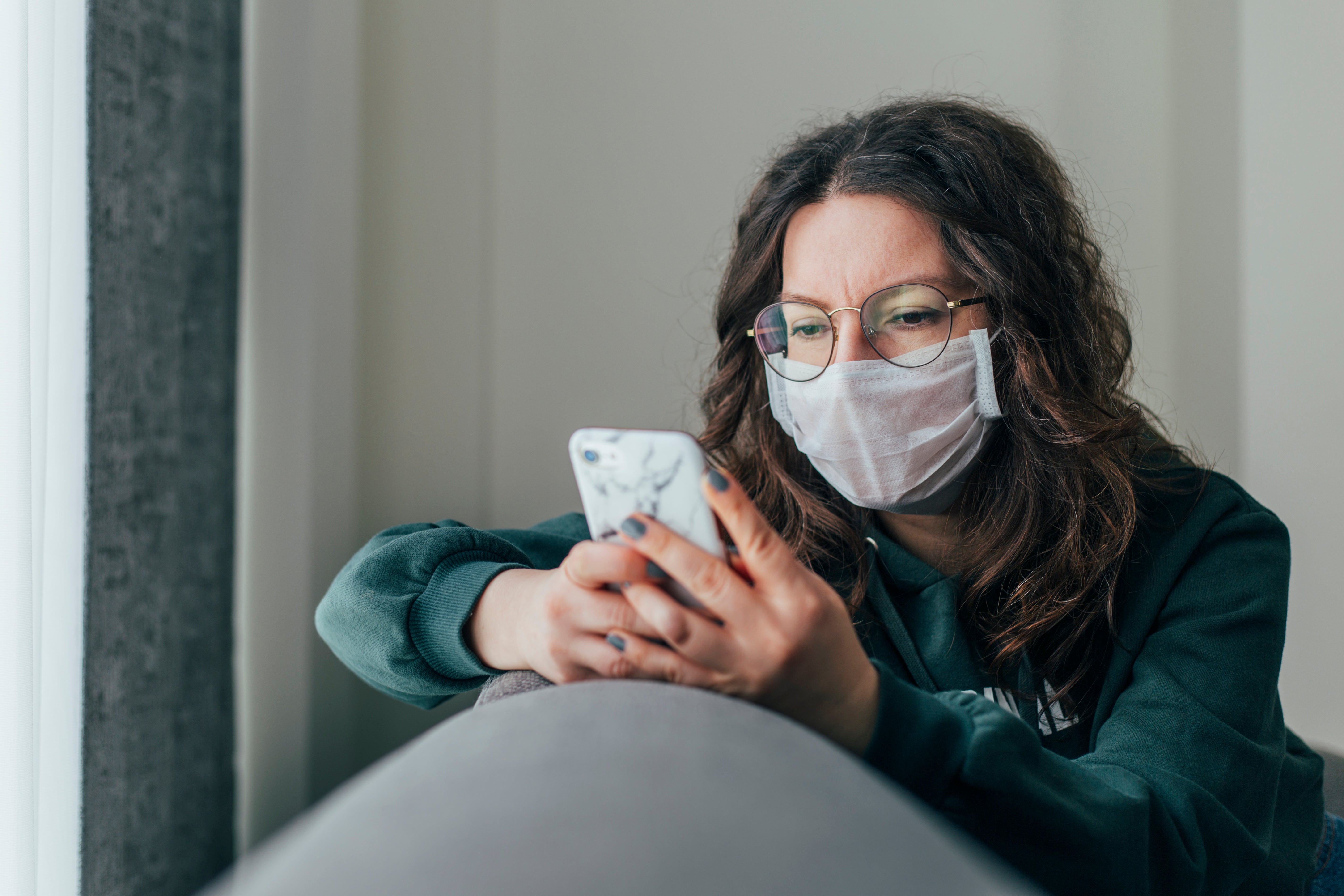How to cope with the current news cycle
As riots break out in America and the UK begins the biggest vaccine roll out ever recorded, Emily Cope speaks to experts about how to cope as we watch history unfold


Last year was one the most eventful in history, and so far 2021 is following much the same path.
On 4 January the Prime Minister Boris Johnson announced England’s third national lockdown, closing schools and all non-essential businesses, with restrictions allowed to ease “by the middle of February, if things go well and with fair wind in our sails.”
The decision came after it was revealed that one in 50 people in the UK now have coronavirus, and means millions have been plunged back into working from home, home schooling their children and once again being unable to see friends or family.
People in the UK have also been faced with the uncertainty of Brexit, with Britain officially leaving the EU on New Year’s Eve after a trade deal was reached at the eleventh hour.
And in the US four people were killed, with one woman fatally shot in the Capitol Hill riots, which saw pro-Trump supporters descend on the Capitol Building in Washington DC on Wednesday night.
It’s yet another historical event to add to the seemingly never-ending list of coronavirus updates, political upheavals and disasters that have happened over the past year.
According to mental health experts, being tuned into the 24-hour news cycle is taking a huge toll on our mental health, fuelling feelings of anxiety, sadness and hopelessness.
Stephen Buckley, head of information at mental healthy charity Mind, tells The Independent: "Current news, such as the coronavirus pandemic and events in America, has created a great deal of uncertainty and concern for the future.
“These things naturally affect our mental health, potentially making us feel stressed and anxious.”
While Dr Michael Sinclair, author of The Little Depression Workbook, adds that constant exposure to shocking news tends to release our stress hormones, making our “fight or flight” response kick in.
"Our body reacts to stressful news stories by pumping out cortisol which makes our heart rate increase and our breathing rate go up. It’s our natural way of dealing with what we view as a threat.
“However we need to recognise when consuming the news starts to become a problem, as excessive stress can lead to anxiety, depression and insomnia.”
We spoke to the experts about how to not let breaking news, break you.
Consider a news curfew
It’s important to stay informed during these times, but consider how much news you take in and don’t let yourself feel bombarded, says Dr Sinclair.
He suggests scheduling a specific time of day to consume the news, and then taking a step back.
“It may be a good idea to mute or turn off news notifications on your smartphone, or limit your news intake to reading a morning paper or watching the evening news,” he said.
“Set a curfew if you have to – perhaps 30 minutes a day or ten news stories – and then be strict with yourself and switch off all sources and try not to get drawn into conversations with friends and family about the news.
"It’s also best not to avoid intense news first thing in the morning - which can affect your mood for the rest of the day - or last thing before bed - as this can cause sleep troubles."
Try not to catastrophise
Humans have a tendency to catastrophise events – that is, imagining the worst outcome.
Dr Sinclair adds: "There’s not doubt we are living in times of great change, but it’s part of the human instinct to look for threats. It’s an inherited trait from our cave-dwelling ancestors and helps keep us alive.
"However it can lead us to think the worst, which can be unhelpful. It’s healthier to recognise that ‘the worst’ is often a story our mind is telling us, not the reality.
“For example, instead of saying 'the state of the world is awful’ say ‘I’m having the thought that the state of the world is awful’ to emphasise this is your mind telling you that, not reality.”
Wait until after the event has unfolded to read about it
When something huge happens, it can be very tempting to stay up all night watching events unfold.
But if you find your anxiety levels high, now could be the time to tune out.
“Remember that it takes awhile to get all of the facts straight, and that's it best to wait awhile to check out the news,” says Dr. Jana Scrivani, a clinical psychologist. “Reading or watching reports on half truths and speculation will only serve to increase anxiety and stress levels.
“It’s best to stick to reliable news outlets once the event has come to a close, or at least calmed down.”
Watch a comedy
Between political riots, natural disasters, and the constant influx of coronavirus updates, the news is often pretty dark, so make sure you lighten up the load by also consuming good news.
Senior therapist Sally Baker advises: "Watching intense news items can be exhausting and draining, but instead of doom-scrolling - that is, scrolling down your news feed looking at all the bad news - sometimes it’s best to seek out good news items or watch something completely unrelated.
“Comedy films and sit coms are what we call ‘event-free television.' Essentially television you can watch without worrying about stress or anxiety because not much happens. It’s gentle escapism, and it’s even better if they make you laugh, as this releases endorphins which are essential for combatting the negative effect the news can have on us."
The @goodnews_movement Instagram account is also perfect to follow, posting only good news from across the globe daily.
Schedule a ‘worry time’
Scheduling a “worry time” each day is a common strategy for managing the symptoms related to anxiety disorders.
Dr Sinclair says this technique is also helpful for watching and digesting the news cycle. “Scroll through the news, acknowledge anything you are worried about, and make plans for addressing any issues,” he says.
“Then choose a time to worry about it - but make sure it’s not near bedtime. After your worry time is over try not to dwell on things and tell yourself you can worry about it again during tomorrow’s worry time, if needs be."
Know that it’s okay to feel stressed
Mind says: “It’s natural to feel upset and worried when things are up in the air, but if feelings are overwhelming or affecting your daily life, it might be worth taking steps to look after yourself or seeking help."
If you have been affected by this article, you can contact The Samaritans for advice and support by phone on 116 123 or email jo@samaritans.org.
Or visit Mind at https://www.mind.org.uk
Join our commenting forum
Join thought-provoking conversations, follow other Independent readers and see their replies
Comments



Bookmark popover
Removed from bookmarks